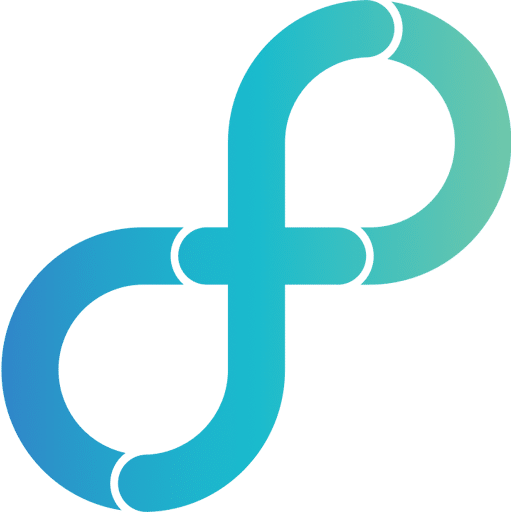- AI-powered automation is the new recruiting standard, with internal education and collaboration key to adoption.
- Real-time skills intelligence creates a common language among different HR functions, enabling a cohesive, end-to-end talent strategy.
- Collaboration — and giving your employees a voice — is essential to implementation.
Treating current and potential employees like customers may seem like a novel idea, but for Sophie Clifford, Vodafone’s Global Head of Talent Acquisition, it’s a concept that’s right at home with her organization’s goals and her personal ethos.

As a marketing graduate who started her career at a recruitment agency before transitioning to in-house talent acquisition for Burberry, Clifford has a uniquely holistic perspective to attracting and retaining the right talent, which includes treating them like customers — especially since they likely are Vodafone customers.
In this episode of The New Talent Code, Clifford joins hosts Ligia Zamora and Jason Cerrato for an insightful conversation about how an organization with nearly 100,000 employees in 25 global markets completely overhauled its HR processes and recruitment strategies by harnessing Eightfold’s talent intelligence software. Clifford shares the critical lessons she learned along the way, including the need for collaboration, how to make skills a universal language, and the unavoidable but invaluable investment of time.
Related content: Vodafone’s Sophie Clifford joins us to talk about how the telecoms leader uses talent intelligence to help it acquire and manage talent.
3 words: Customer, simplicity, growth
One of the major recruitment challenges facing an organization of Vodafone’s size is the wide range of talent needs at any given moment, across all markets and at all levels.
This includes frontline workers running retail stores and corporate office workers. When they realized that their infrastructure was not meeting those needs timely and effectively, it was time for a makeover.
Before revamping their processes, Vodafone’s talent acquisition team was “being seen internally as an inefficient function.” At the same time, research called out that the TA function was the most essential for success, and that was a major wake-up call for Clifford.
“We were seen as one of the most important processes in HR, but we weren’t delivering to their expectations,” she said.
In Vodafone’s case, a qualified candidate pool was not the issue. The problem was sifting through those applicants and promptly responding. For Clifford, this goes beyond a candidate-experience issue.
“We talk a lot about ‘candidates are customers,’ and [they] probably are our actual customers as well, hence why they affiliate to our brand,” she said.
On top of a recruitment process that wasn’t cutting it, another problem loomed — the potential to lose or alienate customers through a poor candidate experience.
With this in mind, Clifford and her team began looking for a solution. From the get-go, they had Vodafone’s overarching strategic priorities as their guiding lights.
“We have three key strategic priorities, and that’s across the whole organization, aligned to our CEO’s priorities,” Clifford said. “Those are customer, simplicity, and growth.”
Time for a new TA plan
In the beginning, Clifford said that it was clear that none of those corporate goals were being met in the recruitment process at Vodafone.
In fact, an internal study showed colleagues viewed recruiting efforts as “not delivering to their expectations.” In addition, the organization’s net promoter score (NPS) for candidate experience was low.
A year after implementing Eightfold, that score jumped by over 40 points.
So what was the key to this rapid success? Calibration.
“We calibrated in the back end 700 critical roles based on job families,” Clifford said. “We added a next layer to that with business experts [and] fed that into the system. Now what the recruiters have is a baseline calibration for pretty much every single role we have.”
Calibration, and more specifically automation, had another important benefit: it reduced unnecessary administrative work and, therefore, improved the bottom line. Before the new system, Clifford said that recruiters and hiring managers were spending 16 hours a week just screening CVs.
The result is a more efficient hiring and talent management process that aligns with Vodafone’s three main priorities. A key metric of this success is time — respect for candidates’ time, effective use of recruiters’ time, and the ability to fill their workforce needs efficiently.
Skills: The most valuable currency
In any hiring situation, Vodafone and candidates want speedy outcomes. With operations in 25 different countries and nine different languages, Vodafone’s manual recruiting process was not meeting either party’s need for speed.
To shift to an automated process, the first step was to create a jobs architecture, linking core skills to functions rather than specific roles. Using this skill-mapping technique, Clifford and her team developed various job families as a starting point, before drilling down to more granular role-specific needs. These job families took two years to build, but the exercise served as an important rubric for AI-powered, skills-based hiring.
Clifford and her team reviewed approximately 40 vendors before landing on Eightfold Talent Intelligence. The system is quick and getting faster all the time, as the AI learns from every new hire and talent redistribution, and meeting workforce needs more efficiently. In fact, since adoption, Vodafone has seen remarkable results.
“From a recruitment perspective, we’re measuring ourselves against how quickly we hire into the organization,” Clifford said. “I can openly say that we’ve reduced our time to hire globally by 50%.”
With Eightfold updating Vodafone’s jobs architecture in real time, their recruiters gained valuable time to focus on other critical tasks, like communicating with candidates and updating hiring managers.
But to ensure a smooth transition and promote adoption, Clifford knew they had to get buy-in across the organization’s many unique markets.
Collaboration: The key to adoption
Clifford’s “aha” moment came when she realized that Vodafone’s various HR silos were all speaking the same language of skills — but not speaking to each other.
The organizational excellence team was driving the job and skills architecture. Learning and development was looking at skills for succession planning. And recruitment was focused on acquiring those skills, but there was no visibility among the functions.
“The epiphany moment was [that] we need to do this in collaboration, as functions, as a COE,” Clifford said. “We need to come together and say, ‘OK, what is the foundation that this all gets built on? What’s that common language that we all can build from?’ And that’s where skills really helped align us and form a strategy.”
By making skills the common language, Vodafone’s HR team ensured it was effectively applying its time and that they could meet needs across the entire organization. They could also ensure everyone using our Talent Intelligence Platform had a voice in designing it — a major factor not only in streamlining the implementation process but in encouraging adoption.
Another important key to adoption was how they communicated with leaders. Clifford said that they specifically focused on how the tool could alleviate manual workloads and integrate with existing systems they were already using. Our Talent Intelligence provided that extra layer of insights on top of Vodafone’s existing ATS to enhance their recruiting efforts.
The final piece of the adoption strategy was to ask each market to designate a subject matter expert who was given intensive training on the tool. These SMEs are now able to train others in their markets on its value and application. And importantly, they have the freedom to adjust that training based on the talent needs that may be unique to their specific market.
AI: The ‘fuel in the Ferrari’
Clifford ultimately credits the success of their skills-based recruitment strategy to the time and effort invested upfront. To truly realize the benefits of AI-powered talent intelligence, preparing Vodafone’s people for change was critical.
“I actually want to share a phrase that’s my boss’ phrase, which is, ‘You can have the fastest car in the world, a Ferrari, but if you don’t put petrol in it, you’re never going to win the race,’ ” she said. “And I think that is Eightfold. If you don’t invest the time, if you don’t invest in the steps like calibration, you are never going to fully transform your process and get all the benefits of that tool. And I think that, for me, has been the biggest learning.”
Listen to the full episode of The New Talent Code with Sophie Clifford on our website or wherever you listen to podcasts.










